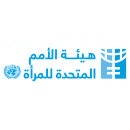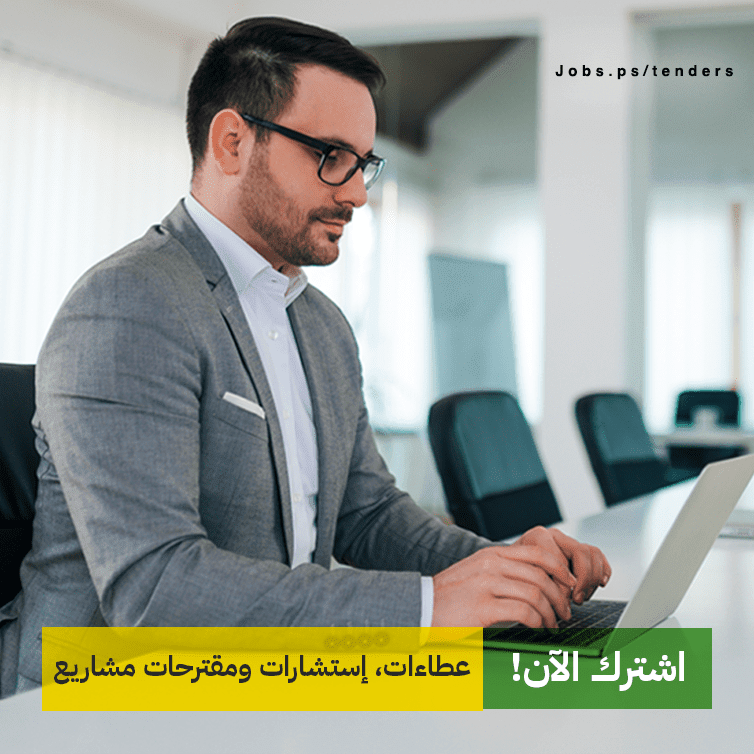Media and Communication Consultant
Background
UN Women, grounded in the vision of equality enshrined in the Charter of the United Nations, works for the elimination of discrimination against women and girls; the empowerment of women; and the achievement of equality between women and men as partners and beneficiaries of development, human rights, humanitarian action and peace and security. Placing women’s rights at the centre of all its efforts, the UN Women leads and coordinates the United Nations system efforts to ensure that commitments on gender equality and gender mainstreaming translate into action throughout the world. It provides strong and coherent leadership in support of Member States’ priorities and efforts, building effective partnerships with civil society and other relevant actors.
UN Women’s triple mandate, along with its global network and deep policy and programming expertise, continues to endow the Entity with a unique capacity to: (i) support Member States to strengthen global norms and standards for gender equality and women’s empowerment, and mainstream gender perspectives in other thematic areas; (ii) promote coordination and coherence across the UN system to enhance accountability and results for gender equality and women’s empowerment; and (iii) undertake operational activities to support Member States, upon their request, in translating global norms and standards into legislation, policies and strategies at country level.
UN Women plays an innovative and catalytic role in the State of Palestine since its inception in 1997 (as UNIFEM). In line with the national priorities, the work of UN Women for the period 2023-2025 is aligned with three of the Palestine United Nations Sustainable Development Cooperation Framework’s (UNSDCF) outcomes:
- Palestinians have greater access to economic opportunities that are inclusive, resilient, and sustainable, including decent employment and livelihoods opportunities in an empowered private sector.
- Palestinians, including the most vulnerable, have equal access to sustainable, inclusive, gender responsive and quality social services, social protection, and affordable utilities.
- Palestinian governance institutions, processes, and mechanisms at all levels are more democratic, rights-based, inclusive, and accountable.
Its three-year Strategic Note supports the efforts to achieve measurable results in country in terms of four UN Women global Strategic Plan impacts (2022-2025): (SP Impact 1). Governance and participation in public life; (SP Impact 2). Women’s Economic Empowerment; (SP Impact 3). Ending Violence Against Women and Girls; SP Impact 4. Women peace and security, Humanitarian & Disaster Risk Reduction.
Under the overall guidance of UN Women Special Representative and direct supervision of the HAYA Joint Programme Manager, the Media and Communication Coordinator Consultant will work in close coordination with the HAYA Joint Programme Manager and the communications focal points of the UN Women, UNFPA, UN Habitat, and UNODC. Main tasks of the role include but are not limited to: Supporting key media and communications activities based on the Joint Programme Media and Communications Strategy and the Media and Communication Annual Work Plan. The process of developing and implementing all media and communications activities should be participatory and through broad consultations with the staff of participating UN agencies, key partners, and other important actors, and clarify roles and responsibilities of each participating UN agency in the Media and Communication Annual Work Plan.
HAYA Joint Programme Background Information
The combination of decades of Israeli occupation and traditional patriarchal norms and values have resulted in ongoing women’s human rights violations and increased violence against women in Palestinian society. HAYA is a five-year Joint Programme generously funded by the Government of Canada, that seeks to eliminate violence against women in the Palestinian society. The Joint Programme brings together the Palestinian Authority (PA), UN agencies, civil society organizations, community-based organizations, and other partners to reduce the vulnerability of women and girls to all forms of violence and from the threat of such violence. The HAYA Joint Programme is implemented by a consortium of UN agencies consisting of the United Nations Entity for Gender Equality and the Empowerment of Women (UN Women), United Nations Population Fund (UNFPA), United Nations Human Settlements Programme (UN Habitat), and United Nations Office on Drugs and Crime (UNODC).
The Ministry of Women’s Affairs and the Ministry of Social Development are key partners of the HAYA Joint Programme, along with other ministries including the Ministry of Education, the Ministry of Heath, the Ministry of Justice, and the Ministry of Local Government, and various civil society organizations. Target beneficiaries of the Joint Programme are women and girls of the Palestinian society, who are survivors of violence or those who are subject to violence. Specific beneficiary groups include women and girl survivors of violence and women from marginalized and vulnerable communities, including women from rural communities; women from Area C and East Jerusalem; women with low economic households; and women in high risk of violence. Men and boys will benefit by engaging in the Joint Programme throughout its implementations.
HAYA’s goals will be achieved through working on three intermediate outcomes focusing on:
- Decreased harmful practices and attitudes that perpetuate and validate violence against women and girls within targeted households and communities;
- Increased access by women and girls of gender-responsive ending violence against women services (economic, medical, psychosocial, security, shelter) free of discrimination; and
- Strengthened institutional capacity to develop and implement legal and policy frameworks that promote and protect women’s and girls’ rights with regards to violence against women.
Duties and Responsibilities
Description of Responsibilities/Scope of Work
- Help organize key events including campaigns and maintain a database of the events, and ensure public engagement for those events to promote programme goals;
- Provide substantive support to the HAYA Joint Programme staff as well as external consultants or firms for the preparation and follow up on the production of advocacy and communications materials (e.g. films, videos, audio-visuals, brochures, fact-sheets, and other knowledge products), including quality aspects of production (e.g. quality control of language, layout, and printing based on UN quality standards) for HAYA’s core activities and projects outputs;
- Manage media outreach through developing and maintaining close collaboration with the media as well as with groups and organizations whose support is essential to the achievement of advocacy and communication objectives of the joint programme, archive coverage, regularly update the media database, invite and encourage media presence at key HAYA events/activities, track media coverage and presence, organize press conferences and develop media kits when necessary;
- Prepare and edit (in Arabic and English) articles, press releases, speeches, brochures, human interest stories and other public information materials for both web-based and traditional media, as appropriate;
- Prepare background communication and promotional materials for briefing and visits of media, donors, representatives, and other special interest groups. Assist as requested in the planning, logistic and administrative arrangements for them; as well as the dissemination of HAYA visibility materials;
- Ensure continuous coordination and exchange with the HAYA Joint Programme’s partners and UN agencies on media and communication-related activities, including technical support and reviewing branding and messaging compliance for all HAYA JP informational communication materials;
- Conduct field visits with UN Project Managers and partners to document Joint Programme work and achievements;
- Maintain a photo database of HAYA Joint Programme activities, take photos during events and field visits and archive the photos in an effective manner;
- Respond to public inquiries to the HAYA Joint Programme, in accordance with the rules and regulations of the joint UN partner agencies and in close coordination with the HAYA Joint Programme Manager;
- Develop request for quotations for design and print material and act as a focal point with vendors for related services;
- Commission the translation of communications and visibility documents from English to Arabic, and vice versa, as needed; and,
- Perform any other related duty assigned by the supervisor.
In addition, the Media and Communication Consultant will collaborate closely with the UN Women Communication team to amplify communication assets and further enhance the reach and impact of the HAYA Joint Programme's initiatives.
Consultant’s Workplace and Official Travel
This is an office-based consultancy at 80% part-time basis from Mondays - Thursdays, in Ramallah/East Jerusalem, with flexibility in teleworking upon approval by the HAYA Joint Programme Manager.
جميع الحقوق محفوظة لموقع جوبس.
Competencies
Core Values:
- Respect for Diversity
- Integrity
- Professionalism
Core Competencies:
- Awareness and Sensitivity Regarding Gender Issues
- Accountability
- Creative Problem Solving
- Effective Communication
- Inclusive Collaboration
- Stakeholder Engagement
- Leading by Example
Please visit this link for more information on UN Women’s Core Values and Competencies:
https://www.unwomen.org/en/about-us/employment/application-process#_Values
FUNCTIONAL COMPETENCIES:
- Knowledge of different aspects of public information and communication;
- Ability to elaborate communication strategies by identifying audiences and communication means;
- Ability to conceptualize, design, and implement major information and advocacy campaigns;
- Ability to rapidly analyze and integrate diverse information from varied sources;
- Ability to produce a variety of written and visual communications products in a clear, concise style, as well as develop messages for use when communicating on the programmes;
- Excellent writing and editing skills and a demonstrated ability to clearly communicate development ideas and experiences;
- Demonstrated creativity, particularly very good sense of design;
- Sound commitment to gender equality, women’s empowerment, human rights, and social justice issues;
- Strong event planning skills;
- Strong knowledge of social media and communication strategies and methods;
- Ability to identify relevant events and stories and communicate them to a mass audience; and,
- Strong multimedia skills.
- Excellent computer skills (word, excel, power point), including basic audio-video editing, and design software.
Required Skills and Experience
Education and Certification:
- Master’s degree or equivalent in media, communications, journalism, international relations, public relations, political sciences, or any other relevant field is required.
- A first-level university degree in journalism, education, media or any other related field in combination with two additional years of qualifying experience may be accepted in lieu of the advanced university degree.
Experience:
- 3 years of progressively responsible work experience in media, communications, journalism, international relations, public relations, political sciences, or any other relevant field;
- Experience in writing and editing high quality contents that clearly communicate development-related ideas for various communications platforms is required;
- Experience working closely with national and international media and knowledge of influential media contacts are an asset;
- Experience in social-media and web content creation/management is an asset;
- Experience working in gender related and/or human rights and social justice issues in Palestine is an asset; and,
- Previous experience with UN or international organization is an asset.
Languages:
Fluency in English and Arabic is required.
How to Apply:
- P11 (P11 can be downloaded from): www.unwomen.org
- A cover letter (maximum length: 1 page)









